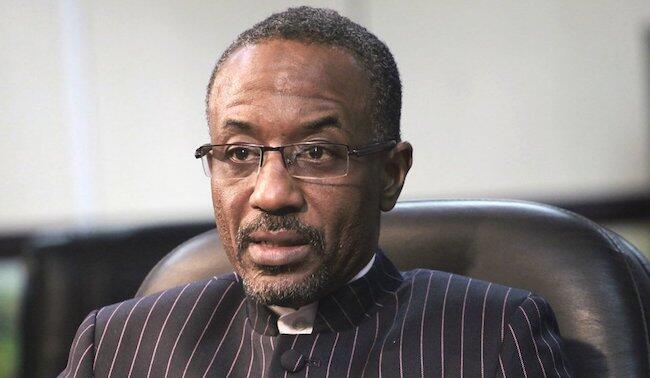Sanusi: Last Man Standing in Soludo’s Great Debate
The recent bombshell released in the media by Charles Soludo is on his evaluation of the 2015 general elections. And the future of the Nigerian economy has created a “great debate” that has migrated to its “natural place.” That is, the major theft of state resources and its protective syndrome. Sanusi Lamido is the only person in that brass who is not in that place.
The “great debate” or “real debate” has fortuitously exposed of the top government political economists (TGPEs) in power. It also exposed rapacious theft and the support of it, obtuse comparisons of no practical value for Nigeria. Then there is an inability to generate useful indigenous statistics, the misuse/avoidance of statistics, doctrinaire adherence to failed neoliberal policy. Plus the glorification of serendipity, choice of selective/prejudiced histories, the touting of qualifications. And worst of all, taking credit for policies actually decided in Washington and New York, not Abuja. That is the debate.
Only ‘crude oil price’ seems to be the one thing accurately modelled in the Nigerian macro-economy with consensus. Without appropriate substantive theory and the robust quantitative guidance of reliable statistics, of what use is a political economist and their policies to any nation? Is this a strong case of Upton Sinclair critique, “It is difficult to get a man to understand something when his salary depends upon his not understanding it?”
Nevertheless, the substance of this so-called “great debate” or real debate created by Charles Soludo only centres on “macroeconomic myths” of Nigeria. Myths? Yes! Rebasing the GDP, opening free markets, observing economic efficiency. And improving/worsening macroeconomic indices/ratios, poverty reduction calculus and other obscurantisms are myths both to 100% of Nigerians and TGPEs themselves. These myths do not differ from the myth of Santa Claus bringing children presents at Christmas time. The children get the presents, but not from Santa.
Macroeconomic obscurantisms touted in the “great debate” are myths because they are about “shifting abstractions” (cf. Lucas Critique). They have no meaning for good economic policy and the everyday life of the electorate. I have never seen their realities in Nigeria. Has any sane person? So why then are macroeconomic myths the stuff of a substantive election campaign in Nigeria? Real debates on real political economy at election time are about real production and real consumption. Or actual jobs and real household incomes, real household savings and real investment. And genuine hunger and real inequality, real corruption and real governance.
Boko Haram terror is helping improve the so called GDP of Nigeria. Increased hospitalisations, increased spending on the military, reconstruction of damaged properties. Or house rents paid by those fleeing violence, increased civilian security requirement / costs are increases in economic activities. They increase GDP. Inflated government contracts, a major means of corruptions, also increase GDP. The ever-growing informal sector, which some reasonably claim, makes up between 60-70% of the Nigerian economy, is absent from the GDP. This is not the place to dissect macroeconomic indicators/models, but it is not impossible to do.
We have seen none credible solutions proffered or admissions of mistakes made by TGPEs in the debate. Just accusations, bitterness, gloom, and gloating. “I too much” is what we hear from these TGPEs, but no economic miracles or sub-miracles have happened under their watch. The multitude of accusations and counter-accusations of thievery and incompetence between them are revealing. They actually sound like the national soccer coach of San Marino. A man who might say he was the first coach in charge to concede less than 40 goals in 10 consecutive matches. World record!
There is the “Guilty-Accuser Syndrome.” It is a pervasive situation whereby those in Nigeria elected/appointed to high office are secretly guilty of provable corruption beforehand. Or they set their maiden duties when in office to office up to implicate them in major theft. This is one key reason corruption persists in Nigeria; “expose my corruption and I will expose yours.” It is a balancing act, tit-for-tat. ‘Silence’ is the best strategy. The TGPEs are only deviating from this strategy because their corruption is being exposed. Tit-for-tat!
Vast corruption happened under Soludo’s watch. We cannot be deny it, but also happened under the watch of the others. All the TGPEs of note in government since 1999 are those now fighting each other over the contents and implications of Soludo’s bombshell, “missing money” included.
Sanusi Lamido Sanusi appears to be the only one appointed to high office in the arena of the Nigerian political economy to “come in” and “leave” clean. Sanusi complained with persistence during his watch as Governor of the Central Bank about the senseless corruption and its consequences on the Nigerian economy. He spoke up about the goings on in President Jonathan’s government, first internally, then publicly. The other “top managers” of the economy kept very “silent” about the same corruption. Ngozi Okonjo-Iweala, Nigeria’s double minister, has a perfect strategy. ‘Be silent when corruption is taking place but shout the heavens down when observed corruption we linked to her.’ That solves taking part in the “Guilty-Accuser Syndrome” game.
Nevertheless, As things stand, Sanusi remains as the last man standing in the “great debate” with TGPEs. Sanusi’s unique position of rising above the “natural place” of Nigerian politicians is difficult to imitate or match. Such a claim can generate a debate of its own, but not here. I can only think of Vincent Azie, Auditor-General of the Federation, as a match of Sanusi after much searching. Sanusi’s contemporaries, TGPEs, at war at the moment. They are not acknowledging his transparency, courage, and exceptionality. Such is no surprise.
It is Nigeria.
Grimot Nane
Discover more from Grimot Nane Zine
Subscribe to get the latest posts sent to your email.

